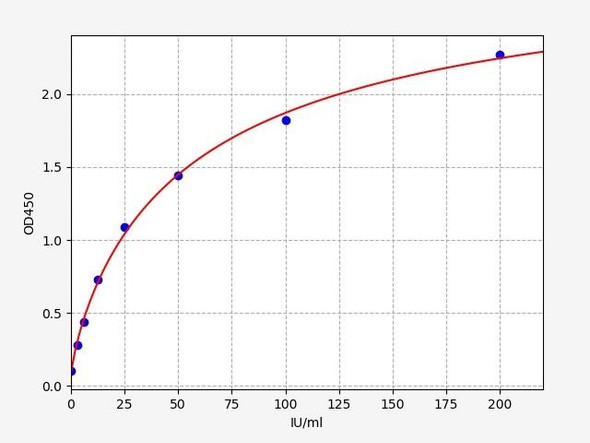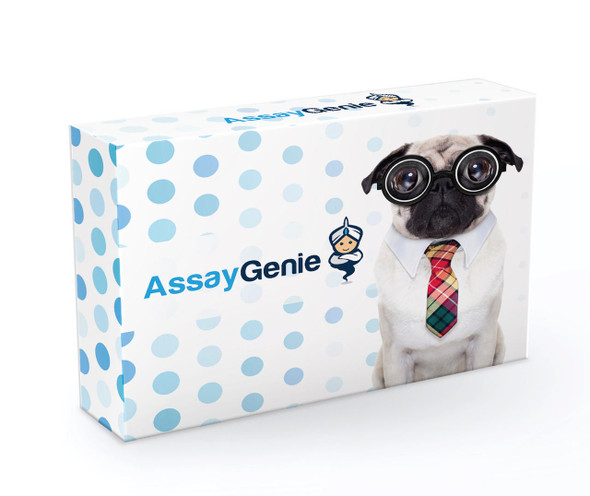Description
CA125 Polyclonal Antibody (CAB24521)
The CA125 Polyclonal Antibody is a valuable tool for researchers studying CA125, a protein that is commonly used as a biomarker for ovarian cancer. This antibody, produced in rabbits, is highly specific to human samples and has been validated for use in Western blot applications. By binding to the CA125 protein, this antibody allows for the accurate detection and analysis of CA125 levels in various cell types, making it ideal for studies in cancer research and diagnostics.CA125 is a glycoprotein that is overexpressed in ovarian cancer cells, making it a useful marker for the early detection and monitoring of this deadly disease.
By studying the expression and regulation of CA125, researchers can gain valuable insights into ovarian cancer biology and potentially develop new diagnostic tools and therapeutic strategies.Overall, the CA125 Polyclonal Antibody is a powerful tool for researchers looking to understand the role of CA125 in ovarian cancer and other diseases. Its high specificity and reliability make it an essential component of any research project involving the study of CA125.
| Product Name: | CA125 Polyclonal Antibody |
| Product Code: | CAB24521 |
| Reactivity: | Human |
| Applications: | Western blotting |
| Host Species: | Rabbit |
| Purification Method: | Affinity purification |
| Isotype: | IgG |
| Reactivity: | Human |
| Tested Applications: | WB, ELISA |
| Key Applications: | Western blotting |
| Recommended Dilution: | WB 1:500-1:1000 |
| Storage Buffer: | Store at -20°C. Avoid freeze / thaw cycles.Buffer: PBS with 0.05% proclin300, 50% glycerol, pH7.3. |
| Cellular Location: | Cell membrane, Secreted, Single-pass type I membrane protein, extracellular space |
This gene encodes a protein that is a member of the mucin family. Mucins are high molecular weight, O-glycosylated proteins that play an important role in forming a protective mucous barrier, and are found on the apical surfaces of the epithelia. The encoded protein is a membrane-tethered mucin that contains an extracellular domain at its amino terminus, a large tandem repeat domain, and a transmembrane domain with a short cytoplasmic domain. The amino terminus is highly glycosylated, while the repeat region contains 156 amino acid repeats unit that are rich in serines, threonines, and prolines. Interspersed within the repeats are Sea urchin sperm protein Enterokinase and Agrin (SEA) modules, leucine-rich repeats and ankyrin (ANK) repeats. These regions together form the ectodomain, and there is a potential cleavage site found near an SEA module close to the transmembrane domain. This protein is thought to play a role in forming a barrier, protecting epithelial cells from pathogens. Products of this gene have been used as a marker for different cancers, with higher expression levels associated with poorer outcomes.
| Immunogen: | Recombinant fusion protein containing a sequence corresponding to amino acids 12660-12923 of human CA125 (NP_078966.2). |
| Sequence: | GFTHW IPVPT SSTPG TSTVD LGSGT PSSLP SPTTA GPLLV PFTLN FTITN LKYEE DMHCP GSRKF NTTER VLQSL LGPMF KNTSV GPLYS GCRLT LLRSE KDGAA TGVDA ICTHR LDPKS PGVDR EQLYW ELSQL TNGIK ELGPY TLDRN SLYVN GFTHQ TSAPN TSTPG TSTVD LGTSG TPSSL PSPTS AGPLL VPFTL NFTIT NLQYE EDMHH PGSRK FNTTE RVLQG LLGPM FKNTS VGLLY SGCRL TLLRP EKNGA ATGM |
| Synonyms: | MUC16, CA125, mucin-16 |
| Calculated MW: | 1519kDa |
| Observed MW: | Refer to figures |






